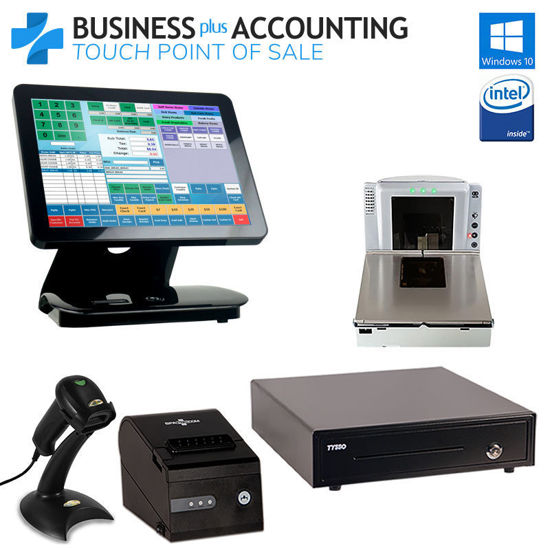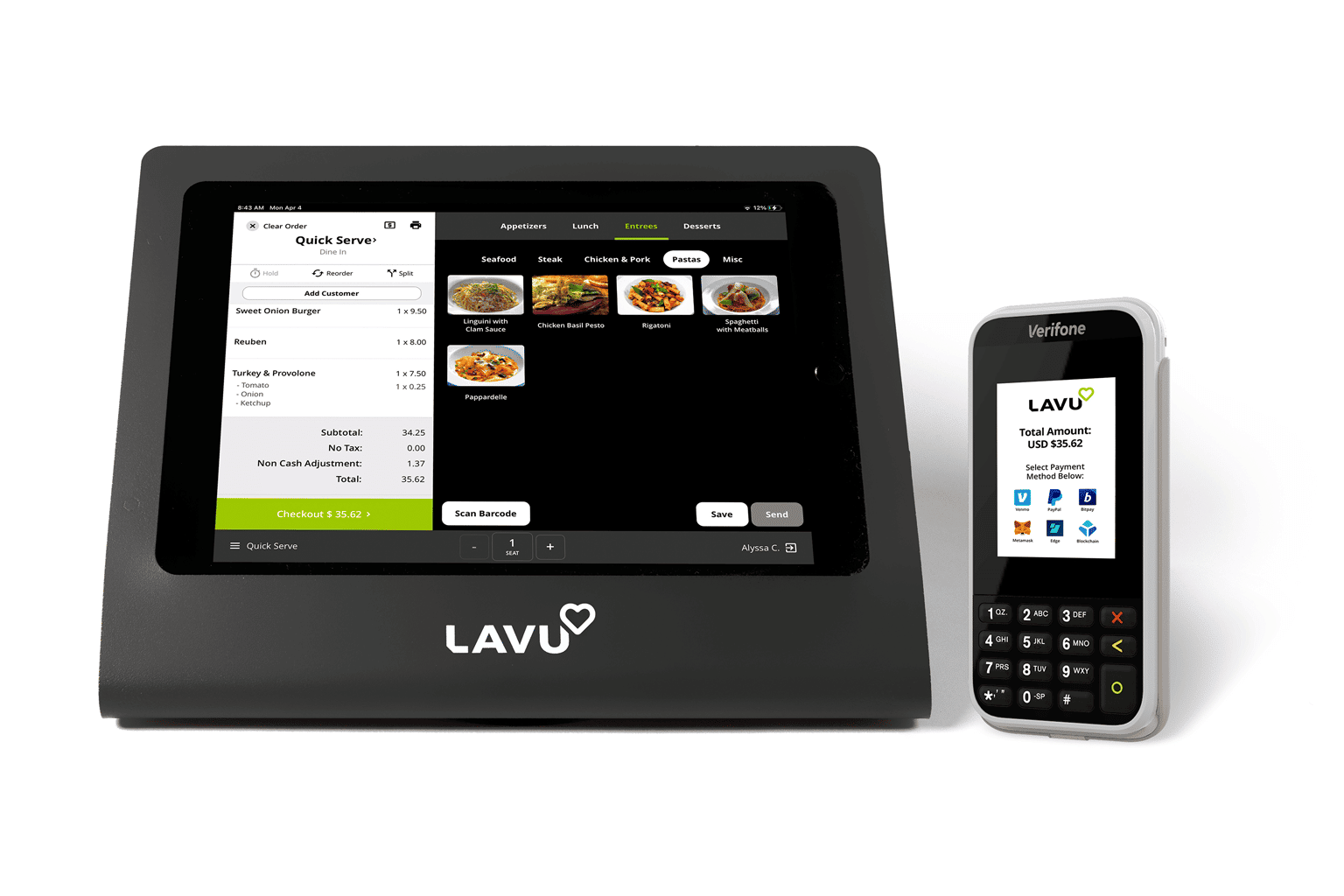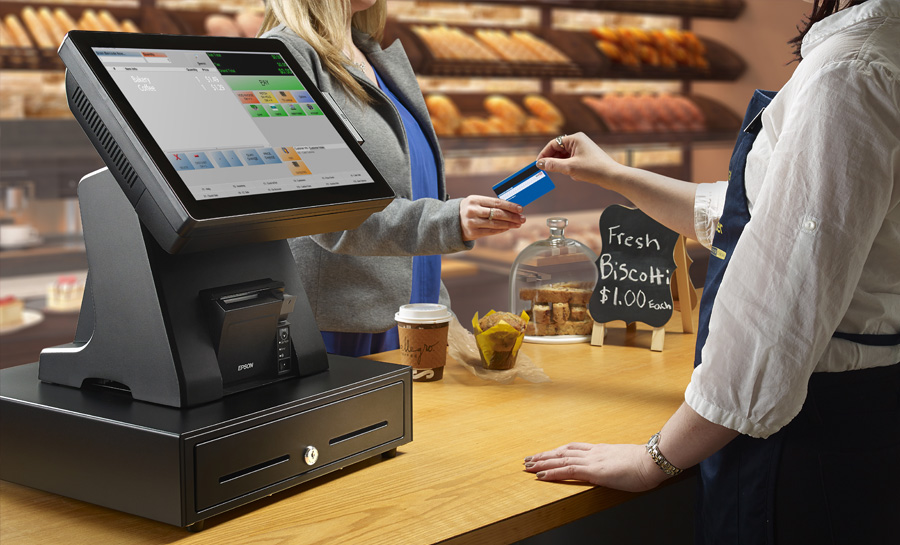5 must-have features in Restaurant POS Software for high-volume restaurants
Understanding the Significance of POS Software Program in Modern Retail Workflow
In today's retail landscape, the role of POS software application has actually ended up being increasingly substantial. These systems have transformed from standard sales register to multifaceted tools that improve different facets of operations. They not just streamline transactions yet also give understandings that can shape service methods. Recognizing exactly how these systems impact client experience and stock administration is crucial for any type of retailer seeking to continue to be affordable. The ramifications of these improvements warrant more expedition.
The Advancement of POS Software Program: From Purchase Handling to Comprehensive Solutions
As retail settings developed, so as well did the capability of Point of Sale (POS) software application, which shifted from standard purchase processing systems to sophisticated, complete services. Initially, POS systems largely dealt with sales purchases, taking care of sales register and printing invoices. Nonetheless, with innovations in technology, these systems started incorporating supply administration, consumer partnership management, and sales analytics. Stores identified the demand for real-time data and smooth operations, prompting the development of cloud-based POS remedies that permitted remote access and improved scalability.Additionally, the surge of mobile business demanded POS systems to adapt, enabling deals through smartphones and tablet computers. This change not only structured procedures but additionally enhanced reporting capabilities, allowing merchants to make informed decisions based upon comprehensive data understandings. As a result, contemporary POS software program has ended up being essential to retail method, serving as a multifunctional tool that sustains various operational elements beyond plain purchase handling.
Enhancing Consumer Experience Through Advanced POS Features
While numerous stores concentrate on operational performance, progressed POS attributes significantly prioritize enhancing the customer experience. Modern POS systems currently supply performances such as mobile settlement alternatives, individualized promos, and consumer loyalty programs, which promote an even more interesting shopping setting. By improving the checkout process, these systems decrease wait times, allowing clients to complete purchases promptly and efficiently.Additionally, integrated client relationship monitoring (CRM) attributes make it possible for stores to track acquiring choices and actions, promoting tailored marketing initiatives. This customization not just constructs client commitment but additionally boosts total satisfaction.Moreover, advanced analytics given by POS systems can assist stores understand client fads and preferences, permitting them to make educated choices regarding item offerings and shop designs. Ultimately, the concentrate on consumer experience with sophisticated POS features not just fulfills modern consumer assumptions yet likewise drives repeat organization and boosts income for sellers.
Enhancing Stock Administration With Integrated POS Solutions
Integrated POS systems play a vital function in simplifying inventory administration by automating processes that traditionally needed significant hands-on effort (Restaurant POS Software). These systems make it possible for stores to track inventory levels in actual time, eliminating inconsistencies that usually arise from hands-on supply matters. With attributes such as barcode scanning and automatic supply replenishment informs, businesses can keep optimal supply degrees without overstocking or stockouts.Furthermore, integrated POS systems promote precise forecasting by examining historic sales information, enabling sellers to make informed buying choices. This predictive ability assists companies adjust to changing customer needs and seasonal fads much more effectively.Additionally, the centralization of supply information throughout numerous sales networks enhances presence, enabling stores to manage their stock more successfully. Inevitably, the integration of POS systems into supply monitoring streamlines operations, lowers human error, and adds to raised success
Real-Time Sales Tracking and Reporting for Informed Decision-Making
Accurate stock management lays the groundwork for effective sales monitoring and coverage. Real-time sales tracking makes it possible for sellers to keep an eye on sales performance as it takes place, giving immediate insights right into consumer investing in patterns and trends. This ability allows organizations to react swiftly to variations sought after, maximizing stock degrees and reducing overstock or stockouts.Moreover, incorporated POS systems help with the generation of in-depth records, highlighting key metrics such as sales by category, time durations, and individual items. Such coverage abilities encourage merchants to make data-driven decisions, recognizing successful techniques and areas requiring enhancement.

The Role of POS Software in Customer Partnership Monitoring
POS software application plays an essential duty in improving client partnership management by making it possible for stores to apply customized advertising and marketing techniques. By analyzing client information, organizations can tailor promos and communications to satisfy individual preferences. In addition, these systems help with the advancement of boosted loyalty programs that encourage repeat company and strengthen client engagement.
Personalized Advertising Methods
As sellers significantly seek to boost client loyalty and involvement, customized advertising and marketing techniques have actually arised as an important part of reliable client connection monitoring. POS software program plays a crucial role in this process by gathering and analyzing customer information, allowing sellers to tailor advertising initiatives to specific preferences and shopping actions. By leveraging understandings from purchase histories, merchants can develop targeted promos and personalized communications that resonate with clients, promoting a much deeper connection. Furthermore, the integration of POS software program with client partnership administration systems allows for smooth monitoring of client communications, guaranteeing that advertising and marketing methods stay prompt and pertinent. This data-driven technique not only boosts client complete satisfaction however likewise urges and drives sales repeat business, strengthening the merchant's market setting.
Boosted Commitment Programs
Stores are click resources progressively recognizing the importance of loyalty programs in fostering long-lasting customer partnerships and enhancing total involvement. POS software application plays an essential duty in the growth and administration of these programs, allowing retailers to track customer behaviors, preferences, and acquisitions efficiently. By leveraging data analytics, businesses can develop customized incentives and incentives that reverberate with individual consumers, consequently enhancing involvement in commitment programs. Additionally, POS systems allow smooth integration with mobile applications and digital platforms, helping with very easy accessibility to promos and incentives. This not only boosts consumer fulfillment however likewise drives repeat organization. Ultimately, POS software program empowers stores to cultivate much deeper links with their customers, transforming periodic consumers right into loyal clients through targeted and meaningful involvement methods.
Integrating POS Solutions With E-Commerce Operating Systems for Omnichannel Success
To achieve true omnichannel success, seamless assimilation in between point-of-sale (POS) systems and ecommerce systems is vital. This integration allows stores to link their supply monitoring, making certain that product schedule is accurately reflected across both online and physical stores. Clients benefit from a cohesive purchasing experience, where they can easily switch over between channels without experiencing discrepancies.Furthermore, incorporated systems facilitate real-time data sharing, enabling organizations to analyze consumer behavior and choices better. This data-driven approach enables stores to customize advertising techniques and enhance supply levels, eventually enhancing client satisfaction and driving sales.Additionally, the capacity to process purchases throughout systems streamlines procedures, minimizing the risk of errors and enhancing overall performance. As retailers significantly embrace omnichannel techniques, the integration of POS systems with e-commerce systems stays an important consider attaining sustainable development and keeping competitive benefit in the dynamic retail landscape.

Future Patterns in POS Modern Technology and Their Effect On Retail Workflow
As retail operations progress, future patterns in POS innovation are readied to improve the landscape substantially. The surge of cloud-based remedies, innovations in mobile POS systems, and the advantages of AI assimilation are amongst the key advancements prepared for to enhance effectiveness and customer experience. These improvements assure to enhance procedures and promote a much more vibrant retail setting.
Cloud-Based Solutions Rise
With the boosting dependence on modern technology, cloud-based POS remedies are changing retail operations by using boosted adaptability and scalability. These systems make it possible for sellers to accessibility real-time information from anywhere, facilitating much better decision-making and customer care. By leveraging cloud infrastructure, services can decrease ahead of time prices connected with hardware and software setups while guaranteeing seamless updates and upkeep. Furthermore, cloud-based options support multi-location monitoring, allowing merchants to synchronize inventory and sales across different electrical outlets effortlessly. This flexibility is necessary in today's fast-paced market, where consumer choices change swiftly. As more stores take on these options, they can anticipate better operational efficiency and a much more responsive approach to market demands, ultimately enhancing client complete satisfaction and loyalty.
Mobile POS Innovations
The development of retail technology remains to form operations, specifically with the rise of mobile POS innovations. These systems allow retailers to process purchases anywhere within the shop, improving consumer engagement and improving check out procedures. Mobile POS services improve stock administration by enabling instantaneous access to supply degrees, assisting personnel assist consumers more efficiently. Additionally, they facilitate personalized purchasing experiences through integrated consumer information and commitment programs. As mobile gadgets end up being increasingly sophisticated, stores are adopting features like it such as contactless repayments and electronic invoices, furthermore enhancing the acquiring trip. The shift towards mobile POS not just boosts functional efficiency but also straightens with the expanding customer choice for comfort, ensuring that sellers remain competitive in a rapidly developing market.
AI Combination Advantages
AI combination stands for a transformative leap in POS technology, providing sellers a myriad of benefits that enhance operational efficiency and customer experience. By leveraging artificial intelligence formulas, sellers can assess buying patterns and enhance inventory monitoring, decreasing waste and stockouts. In addition, AI-powered analytics provide customized advertising recommendations, making it possible for targeted promos that boost client interaction and loyalty (Restaurant POS Software). Chatbots and digital aides enhance customer solution, allowing for quicker resolution of inquiries and enhancing the total buying experience. Anticipating analytics can likewise anticipate need trends, enabling smarter staffing and resource allocation. Eventually, the integration of AI in POS systems empowers retailers to make data-driven decisions, fostering an affordable side in an ever-evolving retail landscape
Frequently Asked Inquiries
What Are the Costs Connected With Carrying Out POS Software Program?
The costs related to implementing POS software application can consist of software licensing costs, equipment costs, installation fees, training costs, and recurring upkeep. Each variable adds to the total investment necessary for a successful implementation.
Exactly How Can Small Retailers Advantage From POS Equipments?

What Hardware Is Needed for a POS System?
A normal POS system requires necessary equipment components, consisting of a touchscreen monitor, cash drawer, barcode scanner, receipt printer, and payment terminal. These components collaborate to facilitate reliable deal processing and supply management for stores.
Can POS Software Be Customized for Certain Retail Demands?
POS software application can undoubtedly be personalized to meet particular retail demands. This flexibility permits organizations to tailor attributes, interfaces, and coverage devices, enhancing functional performance and providing a more personalized experience for both team and consumers.
How Safe Is Customer Data in POS Solutions?
The safety of client data in POS systems differs extensively. Lots of systems execute security, safe and secure accessibility controls, and normal updates, but vulnerabilities can still exist, necessitating continuous caution and proactive measures from sellers to secure sensitive details. By streamlining the check out process, these systems reduce wait times, permitting consumers to total deals promptly and efficiently.Additionally, incorporated customer connection administration (CRM) functions allow merchants check that to track acquiring behaviors and choices, helping with tailored marketing efforts. As stores increasingly seek to improve customer loyalty and interaction, customized advertising and marketing approaches have actually emerged as a necessary component of efficient customer partnership management. Additionally, the assimilation of POS software program with consumer connection monitoring systems permits for smooth tracking of consumer communications, making sure that advertising and marketing methods remain pertinent and timely. Clients benefit from a natural shopping experience, where they can quickly switch between networks without coming across discrepancies.Furthermore, integrated systems promote real-time data sharing, allowing services to assess customer habits and preferences more successfully. Little retailers can benefit from POS systems with boosted transaction performance, structured stock management, and boosted consumer understandings.